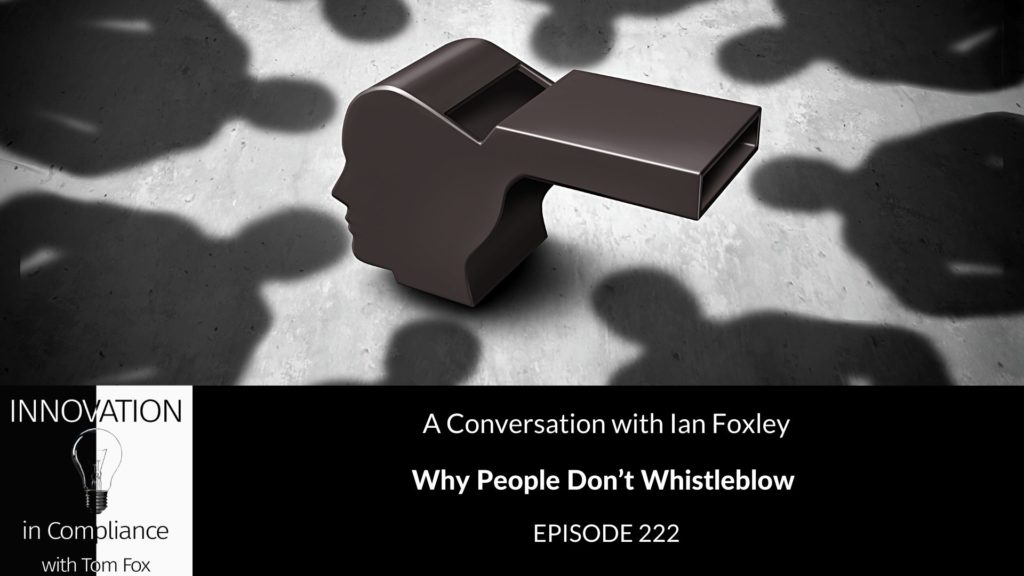
Tom Fox welcomes Ian Foxley to this week’s episode of the Innovation in Compliance Podcast. Ian is well-known for his work as a whistleblower in the Airbus GPT corruption scandal in Saudi Arabia, and is now the founder and CEO of Parrhesia Inc. In this episode, Tom and Ian talk about why individuals have a hard time speaking up, what needs to change within organizations, and what needs to be done to protect whistleblowers.
Parrhesia
Parrhesia is the principle of affording protection by the powerful to the vulnerable in exchange for vital information. It is this principle that Ian founded his company on. It is also a principle that Ian finds to be absent from the modern business world. “If you don’t allow people to question what rulers are doing you end up with autocracy,” he tells Tom. People need to be allowed to ask questions, and if the situation demands it, whistleblow, so that individuals in charge can take stock of their behaviour and change accordingly. Parrhesia is a social contract between an organization and an individual.
Why The Whistle Isn’t Blown
Whistleblowing is about two things: declaring the information, and guarding the corporate/individual reputation. The number one root cause as to why individuals don’t come forward when they have knowledge of corruption is fear. They are scared of losing their jobs, their homes, their health and in some cases their families. Ian lists four other reasons why whistleblowing doesn’t occur:
- Individuals fear that speaking up is not going to be effective.
- Guilt because of complicity, and fear of possible legal action against themselves.
- They’re not brave enough to, but assuage their guilt by hindering or delaying processes within the organizations.
- They believe their actions are for the greater good.
Change The Culture
Tom asks Ian what companies can do to alleviate the fear whistleblowers feel so that they can be comfortable with speaking out. “Unless you can change the culture across a number of companies and organizations, the fear will always be present,” Ian stresses. There needs to be more positive examples of whistleblowers retaining their careers, their sense of identity, and their sense of worth to society after disclosing wrongdoing, or the culture will never change. The fear will always exist. The education has to change and the organizational mindset has to change.
To The Future
“In order to change the world, you have to lose your ego,” Ian says in response to Tom’s question on the future of whistleblowing. In the next phase of corporate existence, whistleblowers have to spread their message. They have to bring people with them and show them that they can fight, and more importantly, win.
Resources
Ian Foxley | LinkedIn | Twitter
Parrhesia Inc


